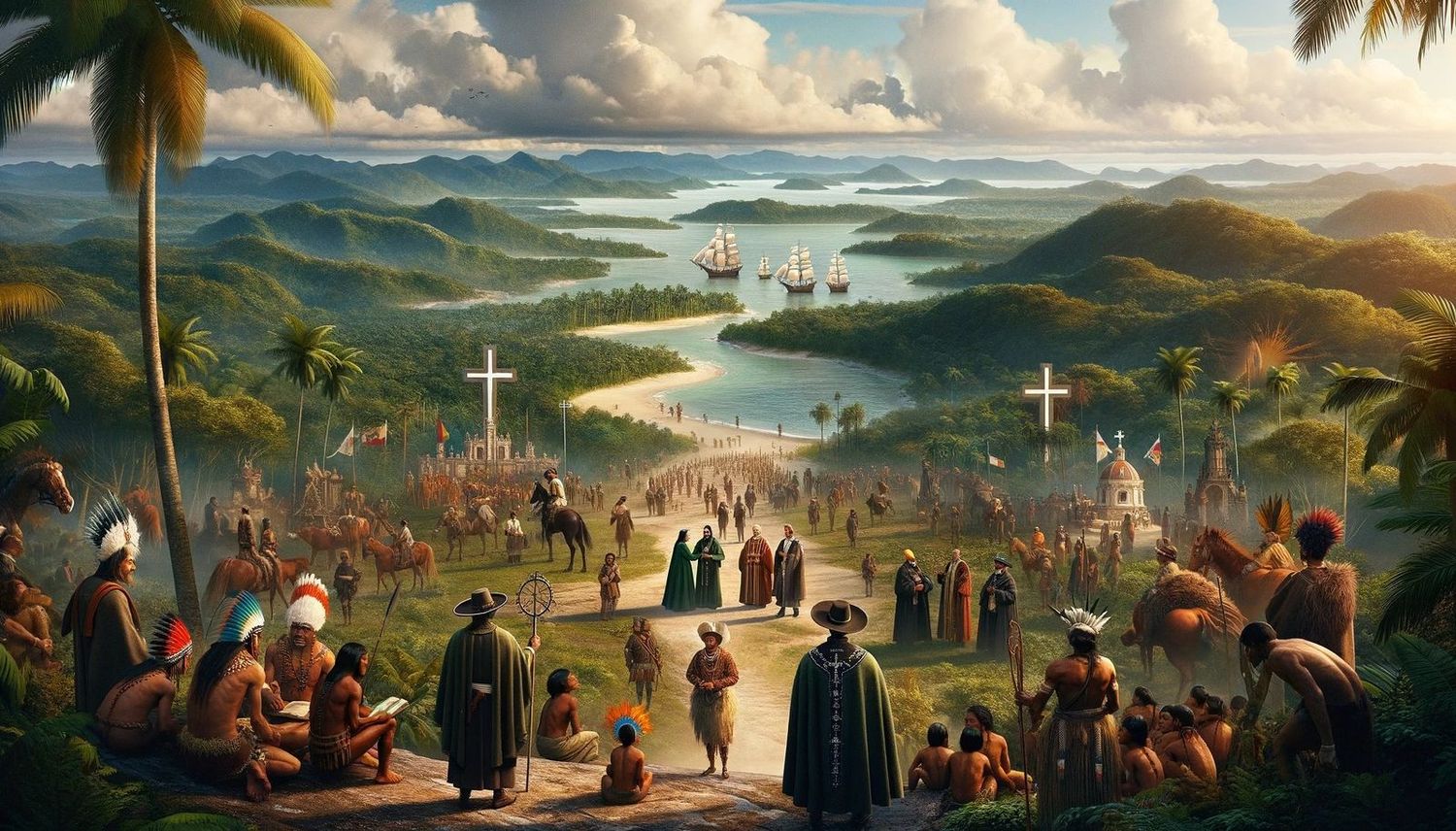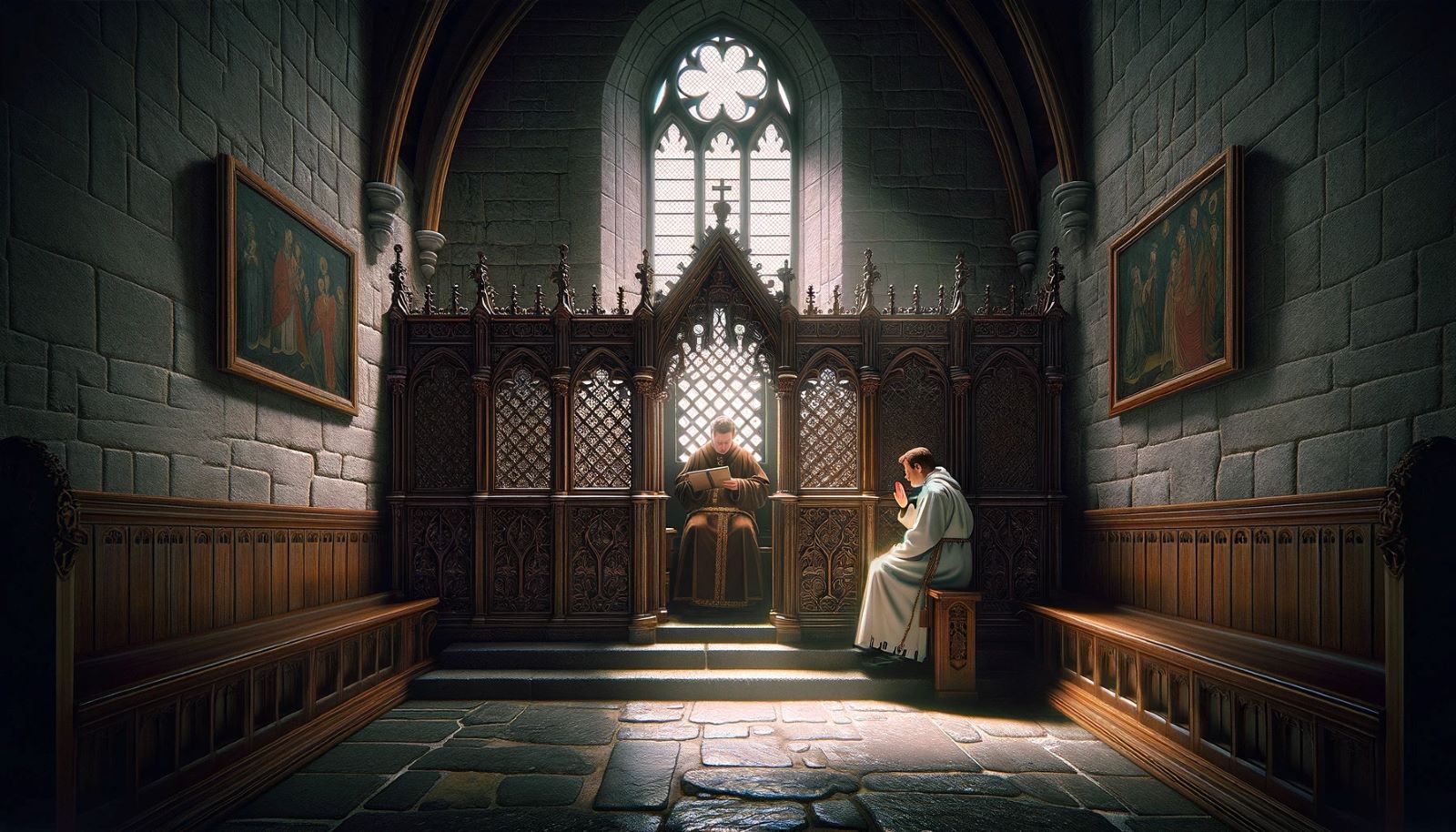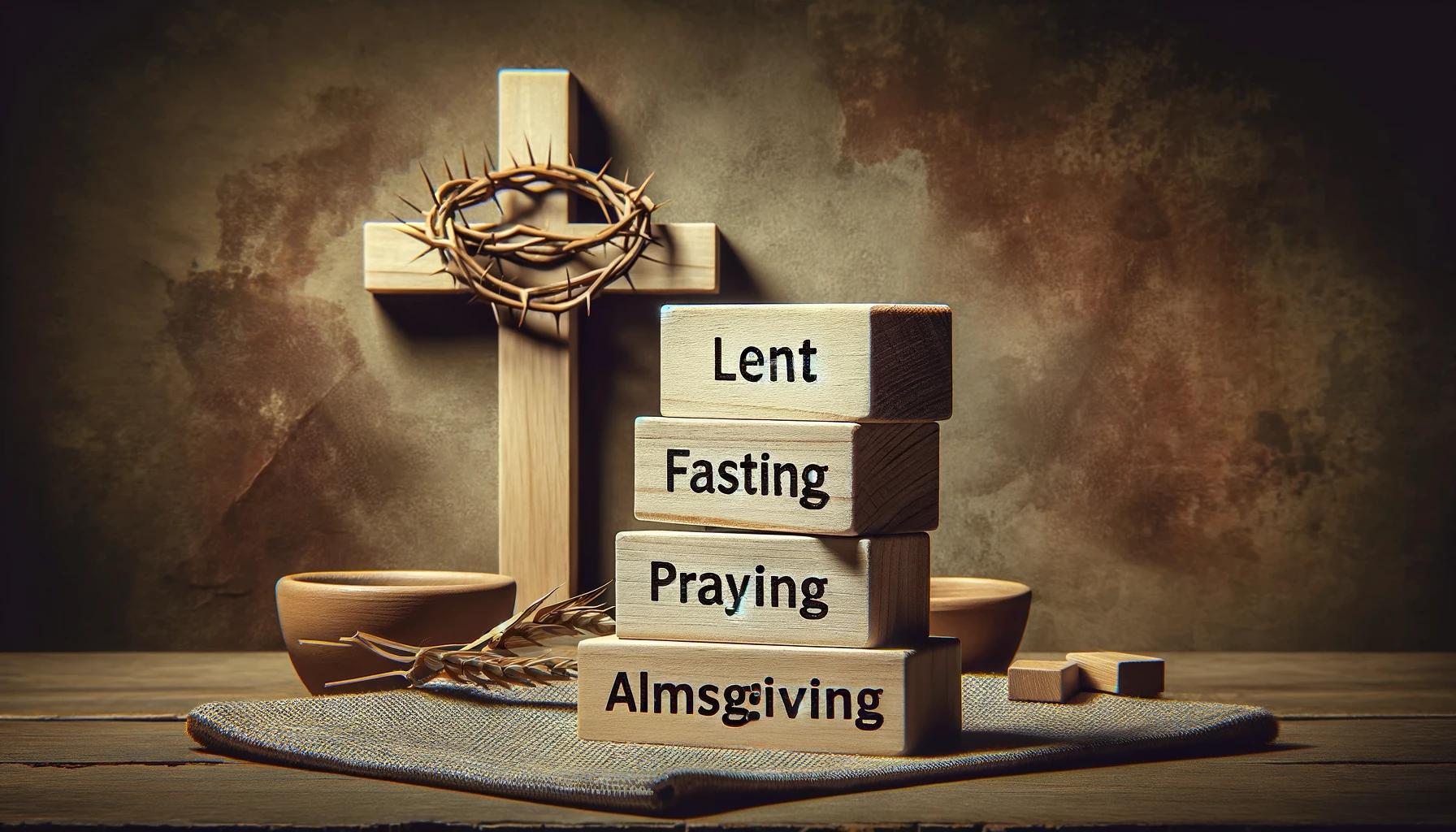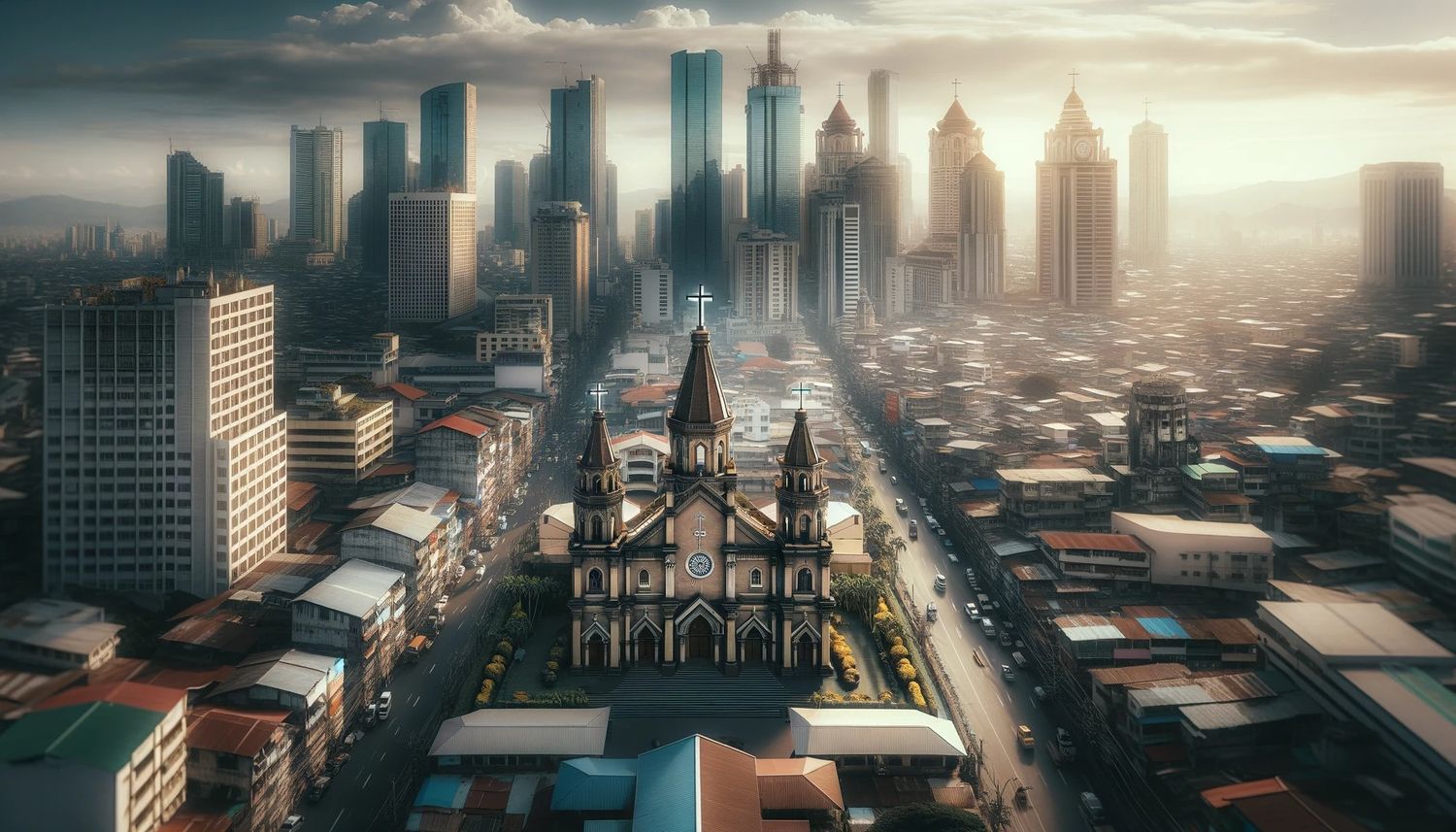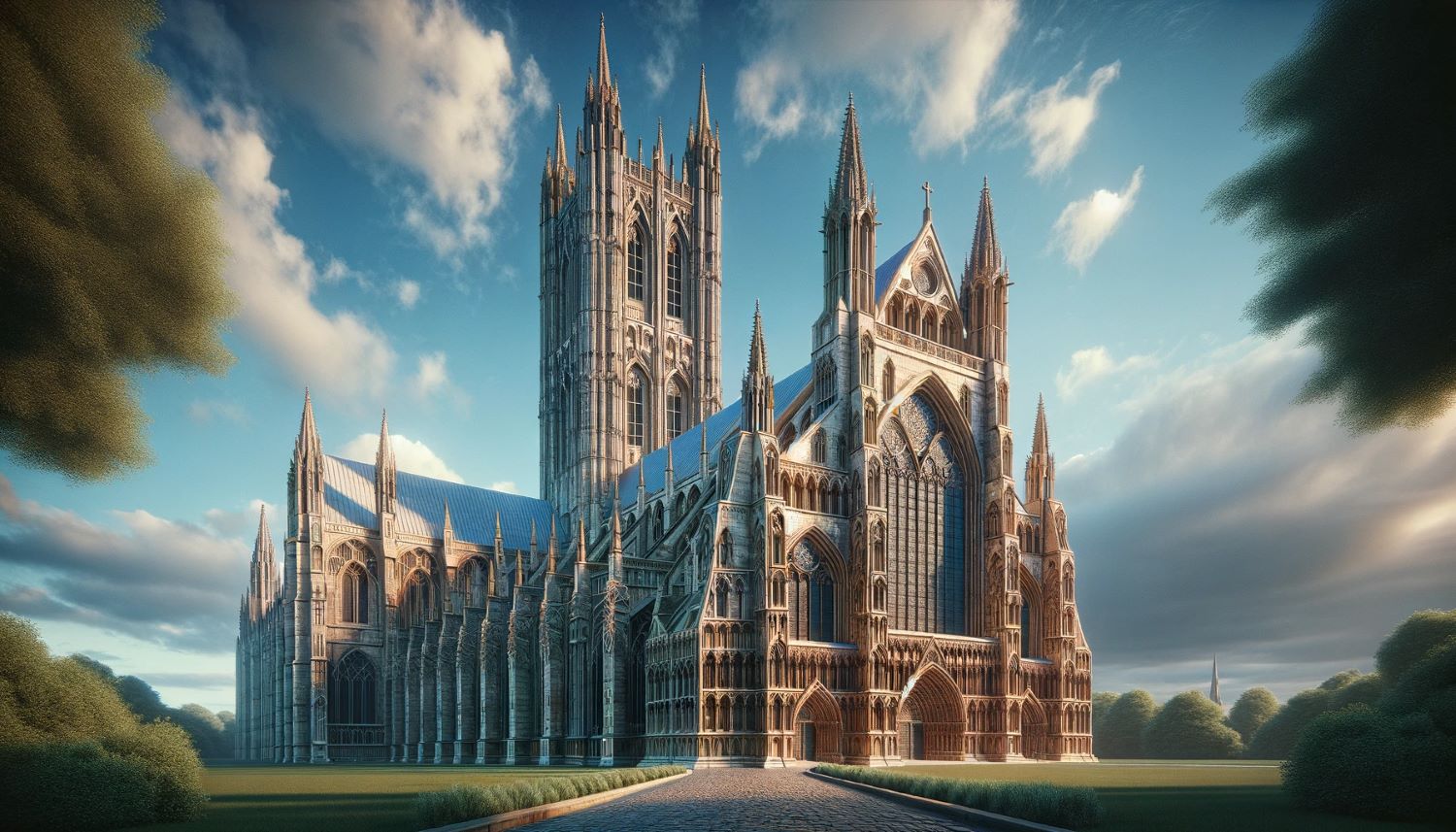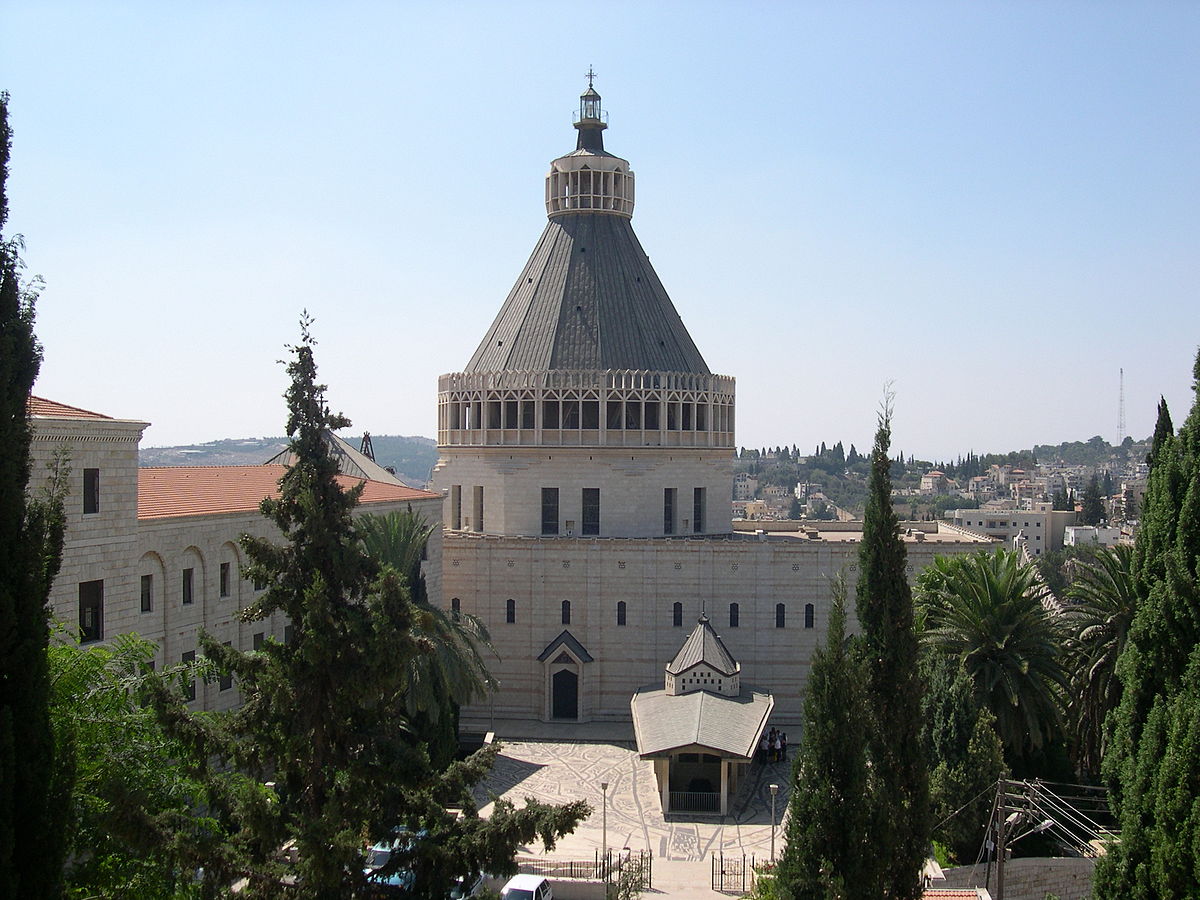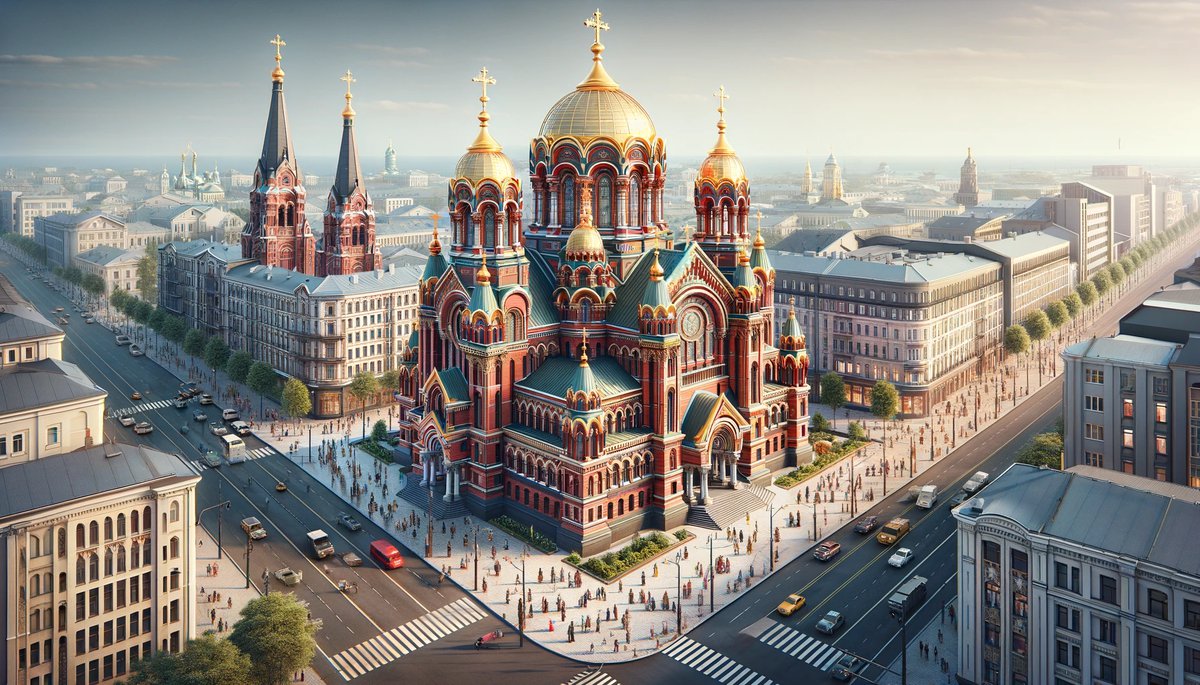Home>Theology and Spirituality>Where Is Catholicism Most Practiced
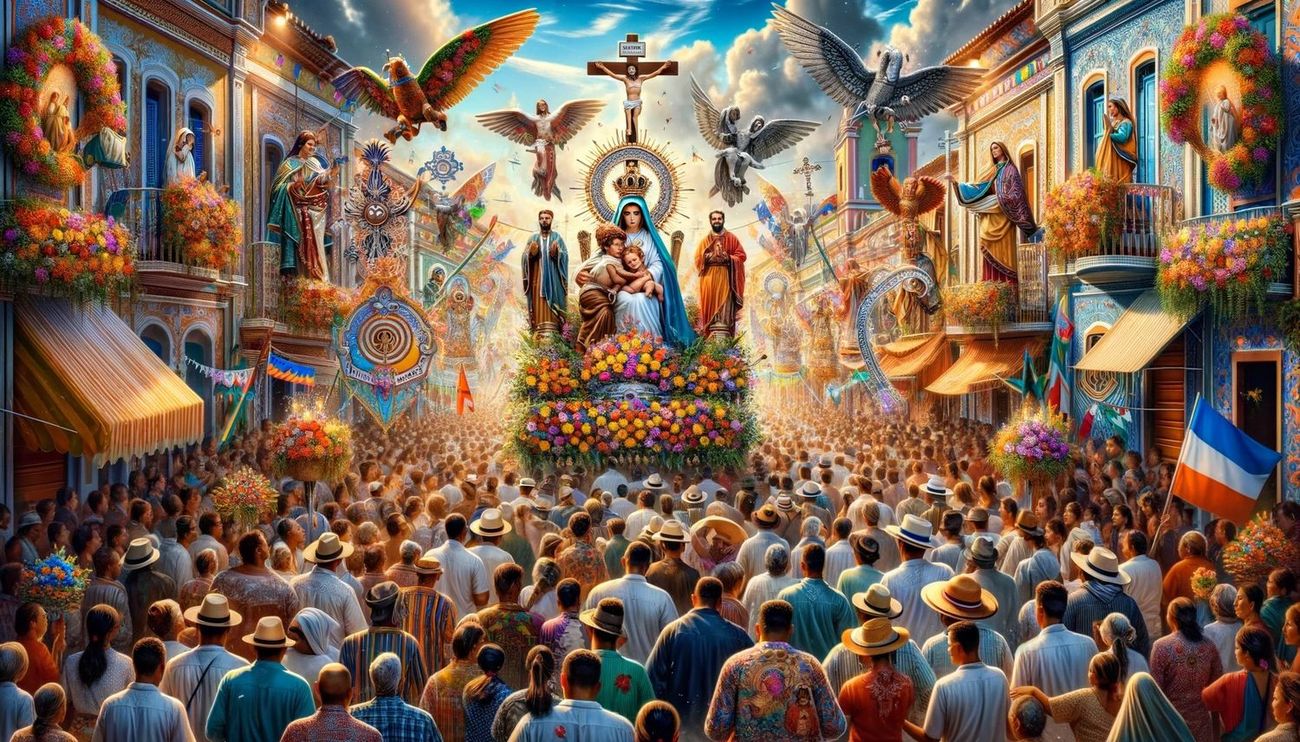

Theology and Spirituality
Where Is Catholicism Most Practiced
Published: February 18, 2024
Jason DeRose, Managing Editor at Christian.net, uses his expertise in religion and journalism to deepen understanding of faith's societal impacts. His editorial leadership, coupled with a strong academic background, enriches the platform’s diverse content, earning him recognition in both journalism and religious circles.
Discover where Catholicism is most widely practiced and explore its significance in theology and spirituality. Learn about the global impact of Catholic beliefs and traditions.
(Many of the links in this article redirect to a specific reviewed product. Your purchase of these products through affiliate links helps to generate commission for Christian.net, at no extra cost. Learn more)
Table of Contents
Introduction
Catholicism, one of the oldest and most widespread Christian denominations, has a global presence with a rich and diverse history. From the grand cathedrals of Europe to the vibrant communities in Latin America, Catholicism has left an indelible mark on cultures and societies around the world. Understanding the geographical distribution of Catholicism provides valuable insights into its influence and significance in different regions.
This article delves into the geographical strongholds of Catholicism, exploring where it is most practiced and deeply rooted. By examining the prevalence of Catholicism in Latin America, Europe, the Philippines, Africa, and North America, we can gain a deeper appreciation for the global impact of this faith tradition. Let's embark on a journey to discover the heartlands of Catholicism and the unique expressions of faith that flourish within these diverse landscapes.
Catholicism in Latin America
Latin America stands as a bastion of Catholicism, with a profound and enduring connection to the faith that has shaped its cultural, social, and religious landscape. The roots of Catholicism in Latin America can be traced back to the era of European colonization, particularly by the Spanish and Portuguese, who brought Catholicism to the region. This historical influence has left an indelible mark, making Latin America home to the largest Catholic population in the world.
The vibrant tapestry of Latin American Catholicism is characterized by a rich tapestry of traditions, rituals, and religious expressions that reflect the fusion of indigenous beliefs with Catholic teachings. This syncretism has given rise to unique religious practices, such as the celebration of patron saints, colorful religious festivals, and the veneration of religious icons, all of which are deeply embedded in the fabric of Latin American culture.
Throughout Latin America, Catholicism permeates various aspects of daily life, from family traditions to societal norms. The influence of Catholic values is evident in the region's strong emphasis on community, solidarity, and social justice, as well as in the profound significance of religious rituals and ceremonies in marking life's milestones, such as baptisms, weddings, and funerals.
The devotion to the Virgin Mary holds a special place within Latin American Catholicism, with numerous Marian apparitions and shrines scattered across the continent. These sacred sites draw millions of pilgrims each year, underscoring the deep spiritual connection that believers have with the Mother of Jesus.
Despite the enduring presence of Catholicism in Latin America, the region has also witnessed the emergence of diverse religious movements and denominations, contributing to a complex religious landscape. However, Catholicism continues to exert a profound influence, shaping the cultural identity and moral framework of Latin American societies.
In recent decades, Latin America has experienced social and political transformations, leading to shifts in religious dynamics and the rise of liberation theology, which advocates for social justice and the rights of the marginalized. This theological movement has resonated deeply within the context of Latin American Catholicism, reflecting a commitment to addressing systemic injustices and promoting human dignity.
As Latin America continues to evolve, the enduring legacy of Catholicism remains deeply ingrained in the region's collective consciousness, serving as a source of strength, resilience, and spiritual nourishment for millions of faithful adherents.
The profound impact of Catholicism in Latin America extends far beyond religious boundaries, shaping the very essence of the region's identity and cultural heritage. It stands as a testament to the enduring power of faith in shaping societies and nurturing the human spirit.
Catholicism in Europe
Catholicism has deep historical roots in Europe, serving as a cornerstone of the continent's religious and cultural heritage. From the majestic cathedrals of Rome to the tranquil villages of Ireland, Catholicism has left an indelible mark on the landscapes and societies of Europe. The history of Catholicism in Europe is intertwined with pivotal events such as the spread of Christianity by early missionaries, the establishment of the Papal States, and the influence of the Vatican as a spiritual and temporal authority.
Throughout the centuries, Europe has been home to a rich tapestry of Catholic traditions, rituals, and theological developments. The continent has been the birthplace of influential theologians and saints, including St. Thomas Aquinas, St. Augustine, and St. Teresa of Ávila, whose writings and teachings have profoundly shaped Catholic theology and spirituality.
The architectural marvels of European cathedrals stand as testaments to the enduring legacy of Catholicism, showcasing exquisite craftsmanship and artistic expression. The Gothic splendor of Notre-Dame Cathedral in Paris, the grandeur of St. Peter's Basilica in Vatican City, and the intricate beauty of the Sagrada Família in Barcelona are just a few examples of the architectural wonders that reflect the devotion and creativity inspired by the Catholic faith.
In addition to its cultural and artistic contributions, Catholicism has played a pivotal role in shaping European societies, influencing moral values, ethical frameworks, and social structures. The Catholic Church has historically been a significant patron of education, healthcare, and charitable works, contributing to the welfare of communities across the continent.
The diversity of Catholic expressions in Europe is reflected in the myriad of religious festivities, pilgrimages, and devotions that are deeply ingrained in the fabric of European societies. From the fervent celebrations of Holy Week in Spain to the reverent pilgrimages to Lourdes in France, these religious practices serve as poignant reminders of the enduring faith and spiritual heritage that permeate European culture.
While Europe has experienced secularization and shifting religious landscapes in recent decades, Catholicism continues to exert a profound influence, particularly in countries such as Italy, Poland, Ireland, and Spain, where the Catholic identity remains deeply intertwined with national identity and cultural traditions.
The enduring presence of Catholicism in Europe serves as a testament to the resilience and adaptability of the faith, as it continues to inspire and guide millions of believers across the continent, fostering a sense of spiritual belonging and cultural continuity.
The profound impact of Catholicism in Europe extends far beyond religious boundaries, shaping the very essence of the continent's identity and cultural heritage. It stands as a testament to the enduring power of faith in shaping societies and nurturing the human spirit.
Catholicism in the Philippines
Catholicism holds a profound and enduring presence in the Philippines, shaping the religious, cultural, and social fabric of this Southeast Asian archipelago. The arrival of Spanish explorers and missionaries in the 16th century marked the introduction of Catholicism to the Philippines, a pivotal moment that laid the foundation for the enduring influence of the faith in the country.
The Philippines stands as the bastion of Catholicism in Asia, with approximately 80% of its population identifying as Catholic. This strong affiliation with the faith is deeply intertwined with the nation's history, as Catholicism became intricately woven into the Filipino identity, customs, and traditions.
The religious landscape of the Philippines is characterized by vibrant expressions of faith, marked by fervent devotions, religious processions, and the celebration of patron saints. The annual Feast of the Black Nazarene in Manila and the Ati-Atihan Festival in Aklan are vibrant manifestations of the deep-rooted Catholic traditions that permeate Filipino culture.
The devotion to the Virgin Mary holds a special place within Filipino Catholicism, with numerous Marian shrines and pilgrimage sites scattered across the archipelago. The Basilica Minore del Santo Niño in Cebu and the Our Lady of Peñafrancia Shrine in Naga City are revered destinations for pilgrims, reflecting the profound spiritual connection that Filipinos have with the Mother of Jesus.
The influence of Catholicism extends beyond religious practices, shaping the moral and ethical framework of Filipino society. The Catholic Church has historically played a pivotal role in advocating for social justice, human rights, and community empowerment, contributing to the welfare and well-being of the Filipino people.
The resilience of Filipino Catholicism is evident in the face of historical challenges and societal transformations. Despite periods of colonial rule and socio-political upheavals, the faith has remained a source of strength, unity, and spiritual solace for millions of Filipinos, fostering a deep sense of communal solidarity and resilience.
In contemporary Philippines, Catholicism continues to be a cornerstone of the nation's cultural identity, influencing various aspects of public and private life, from family traditions to national celebrations. The enduring legacy of Catholicism in the Philippines serves as a testament to the profound impact of faith in shaping the collective consciousness and spiritual ethos of the Filipino people.
The profound impact of Catholicism in the Philippines extends far beyond religious boundaries, shaping the very essence of the nation's identity and cultural heritage. It stands as a testament to the enduring power of faith in nurturing societies and uplifting the human spirit.
Catholicism in Africa
Catholicism has established a significant presence in Africa, contributing to the religious, cultural, and social dynamics across the continent. The history of Catholicism in Africa is intertwined with the legacy of missionary efforts, colonial encounters, and the enduring resilience of local faith communities. The introduction of Catholicism to Africa dates back to the early phases of European exploration and colonization, as missionaries from various Catholic orders ventured into the diverse landscapes of the continent, seeking to spread the Christian faith.
The spread of Catholicism in Africa has been marked by a complex interplay of cultural exchange, religious syncretism, and the adaptation of Catholic teachings to local customs and traditions. This dynamic process has given rise to a rich tapestry of African Catholic expressions, characterized by vibrant liturgical music, colorful religious festivities, and the incorporation of indigenous symbols and rituals into Catholic worship.
The Catholic Church in Africa has played a pivotal role in addressing social, economic, and humanitarian challenges, advocating for justice, peace, and the empowerment of marginalized communities. Through its educational and healthcare initiatives, the Catholic Church has made significant contributions to the well-being and development of African societies, particularly in areas affected by poverty, conflict, and social inequality.
The devotion to saints, particularly those with African origins, holds a special significance within African Catholicism, reflecting the deep spiritual resonance that these figures hold within local communities. The veneration of saints such as St. Augustine of Hippo and St. Charles Lwanga serves as a testament to the enduring impact of Catholicism on the spiritual consciousness of African believers.
In contemporary Africa, Catholicism continues to thrive, with a growing number of faithful adherents and a vibrant ecclesial life that reflects the diverse cultural tapestry of the continent. The resilience and adaptability of African Catholicism are evident in the emergence of indigenous clergy, the promotion of inculturated forms of worship, and the active engagement of the Church in addressing contemporary social and environmental challenges.
The enduring legacy of Catholicism in Africa stands as a testament to the profound impact of faith in shaping the collective consciousness and spiritual ethos of the continent. It serves as a source of hope, solidarity, and spiritual nourishment for millions of African Catholics, fostering a deep sense of communal resilience and cultural continuity.
The profound impact of Catholicism in Africa extends far beyond religious boundaries, shaping the very essence of the continent's identity and cultural heritage. It stands as a testament to the enduring power of faith in nurturing societies and uplifting the human spirit.
Read more: Where And When Did Catholicism Originate
Catholicism in North America
Catholicism has played a significant role in shaping the religious landscape of North America, leaving a lasting imprint on the cultural, social, and spiritual fabric of the continent. The history of Catholicism in North America is deeply intertwined with the early explorations and settlements by European colonizers, particularly the Spanish and French, who brought the Catholic faith to the shores of present-day United States, Canada, and Mexico.
In the United States, Catholicism has flourished, with a diverse and vibrant community that reflects the rich tapestry of immigrant experiences and cultural traditions. The Catholic Church has been instrumental in establishing educational institutions, healthcare facilities, and social service organizations, contributing to the welfare and well-being of communities across the country. The influence of Catholicism is particularly pronounced in regions such as the Northeast and the Midwest, where Catholic traditions and values have become integral to the local identity.
In Canada, Catholicism has deep historical roots, dating back to the early French and British colonial periods. The Catholic Church has played a pivotal role in the development of Canadian society, advocating for social justice, indigenous rights, and the promotion of multiculturalism. The presence of Catholicism is especially prominent in the province of Quebec, where the faith has left an indelible mark on the cultural and linguistic heritage of the region.
In Mexico, Catholicism holds a central place in the nation's identity, with a rich tapestry of religious traditions and devotions that reflect the fusion of indigenous and Spanish influences. The veneration of Our Lady of Guadalupe, Mexico's patroness, stands as a powerful symbol of the deep spiritual connection that Mexicans have with the Catholic faith. The Catholic Church has been a significant advocate for social justice and human rights in Mexico, addressing issues of poverty, inequality, and migration.
The resilience and adaptability of Catholicism in North America are evident in the diverse expressions of faith, the engagement of the Church in social and political issues, and the active participation of Catholic communities in promoting solidarity and compassion. Despite the challenges posed by secularization and shifting demographics, Catholicism continues to be a source of spiritual nourishment and communal solidarity for millions of faithful adherents across North America.
The enduring legacy of Catholicism in North America stands as a testament to the profound impact of faith in shaping the collective consciousness and cultural heritage of the continent. It serves as a source of resilience, compassion, and spiritual continuity, fostering a deep sense of communal solidarity and cultural diversity.
Conclusion
The geographical strongholds of Catholicism encompass a diverse tapestry of cultures, traditions, and expressions of faith that have left an indelible mark on societies across the globe. From the vibrant landscapes of Latin America to the majestic cathedrals of Europe, from the fervent devotions in the Philippines to the resilient spirit of African Catholicism and the diverse expressions in North America, Catholicism has thrived and adapted, shaping the collective consciousness and cultural heritage of the regions where it is most practiced.
The enduring legacy of Catholicism in these diverse geographical regions serves as a testament to the profound impact of faith in nurturing societies and uplifting the human spirit. It reflects the resilience, adaptability, and transformative power of Catholicism as it continues to inspire and guide millions of believers, fostering a sense of spiritual belonging, communal solidarity, and cultural continuity.
As we journey through the heartlands of Catholicism, we witness the profound influence of the faith on the moral, ethical, and social frameworks of communities, as well as its role in advocating for social justice, human rights, and the empowerment of marginalized populations. The devotion to saints, the celebration of religious festivities, and the architectural marvels of cathedrals stand as testaments to the enduring legacy of Catholicism, reflecting the diverse and vibrant expressions of faith that permeate these regions.
In a world marked by rapid change and evolving religious landscapes, the geographical strongholds of Catholicism stand as beacons of spiritual resilience, cultural diversity, and communal solidarity. The enduring power of Catholicism to shape societies and nurture the human spirit is a testament to its profound and timeless significance in the lives of millions of faithful adherents across the continents.
As we conclude this exploration, we are reminded of the universal appeal and enduring relevance of Catholicism, transcending geographical boundaries to touch the hearts and souls of believers around the world. The geographical strongholds of Catholicism stand as living testimonies to the enduring power of faith in shaping the collective consciousness, fostering resilience, and nurturing the human spirit in diverse and profound ways.
